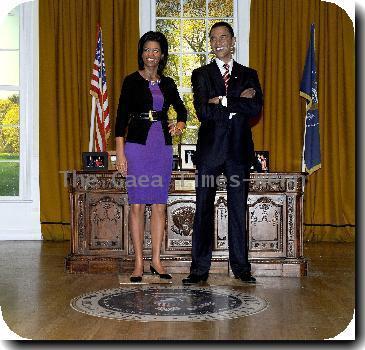Impasse in DC threatens to punch $130M hole in Kan. budget; inaction becomes political issue
By John Hanna, APThursday, June 17, 2010
Next Kan. budget depends on extra federal funds
TOPEKA, Kan. — A congressional impasse over a new economic stimulus package threatens to punch a $130 million hole in Kansas’ budget, only weeks after state legislators raised taxes to keep it balanced.
The impasse also bubbled as a political issue Thursday. Kansas’ Sam Brownback has joined fellow Republicans in the U.S. Senate in opposing legislation backed by President Barack Obama and other Democrats. Brownback is the leading GOP candidate for governor, and presumed Democratic nominee Tom Holland criticized him.
Obama’s plan for a new economic stimulus includes extra Medicaid funds for states for the first half of 2011. Kansas’ $13.7 billion budget for the fiscal year beginning July 1 assumes that the state receives an additional $130 million.
If the money doesn’t arrive, Kansas will face cutting social services and aid to public schools again, as it did in 2009. A desire to avoid such reductions this year led Democratic Gov. Mark Parkinson and the Republican-controlled Legislature to boost the state’s 5.3 percent sales tax to 6.3 percent, starting July 1.
“We may well have to make more cuts,” said Jay Emler, a Lindsborg Republican who is chairman of the state Senate Ways and Means Committee.
Brownback, like U.S. Sen. Pat Roberts, another Kansas Republican, has opposed Obama’s efforts because they will add to the federal budget deficit. Both said Thursday that the additional spending needs to be offset, perhaps with existing stimulus funds.
“We are all in agreement that Medicaid funding is vital to Kansas,” Brownback said in a statement. “With our debt out of control, we need to be fiscally responsible.”
In pushing for a state sales tax hike, Parkinson argued that additional spending cuts would cripple schools and state programs. The tax increase is expected to raise $314 million for the next fiscal year.
Some legislators, including Emler, resisted counting upon the extra federal Medicaid dollars, which help the state cover health care services for the poor, disabled and elderly. But doing so made balancing the budget tougher by requiring spending reductions or a larger tax increase.
“In order to get a budget passed, I don’t think we had any choice,” Emler said.
A majority of states made the same decision in their fiscal 2011 budgets, according to the National Conference of State Legislatures. But the exceptions include Missouri and Nebraska.
Parkinson described the Senate’s inability to pass a stimulus bill with additional Medicaid funds as disappointing. But he added in a statement Thursday that he will continue to lobby the state’s congressional delegation.
State Budget Director Duane Goossen said he had anticipated that Congress might not take final action until this fall.
“It would be great to get it resolved — then we’d know,” he said. “The sooner, the better.”
Holland began raising Brownback’s stance as an issue last week, after Parkinson met with Brownback and Roberts in Washington.
Holland questioned Brownback’s call for fiscal restraint, saying Brownback had supported “record spending, new debt and billions in earmarks” in the past.
“All of a sudden, he becomes fiscally responsible when it comes to helping the elderly and poor people,” Holland said Thursday in an interview. “Obviously, he has misplaced priorities.”
Brownback’s campaign responded by trying to tie Holland to Obama. It noted that in January — after Obama’s first year in office — about 54,000 fewer people in Kansas were employed than in January 2009, adding, “The Obama approach of increasing federal debt will not help the Kansas economy grow.”
Online:
State of Kansas: www.kansas.gov/
Tom Holland’s campaign: www.tomhollandforkansas.com/
Sam Brownback’s campaign: www.brownback.com/
Tags: Barack Obama, Government Programs, Government-funded Health Insurance, Kansas, North America, Political Issues, Topeka, United States

